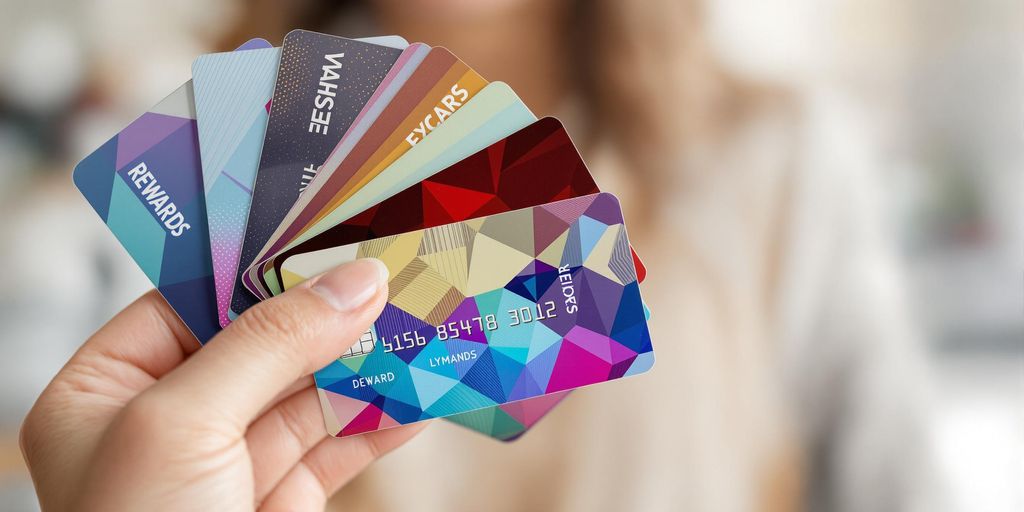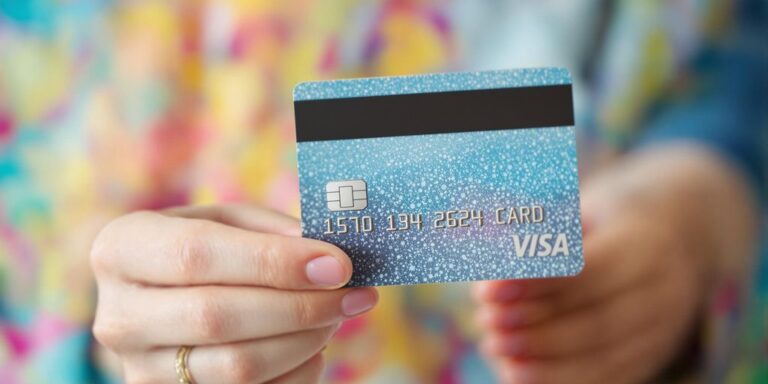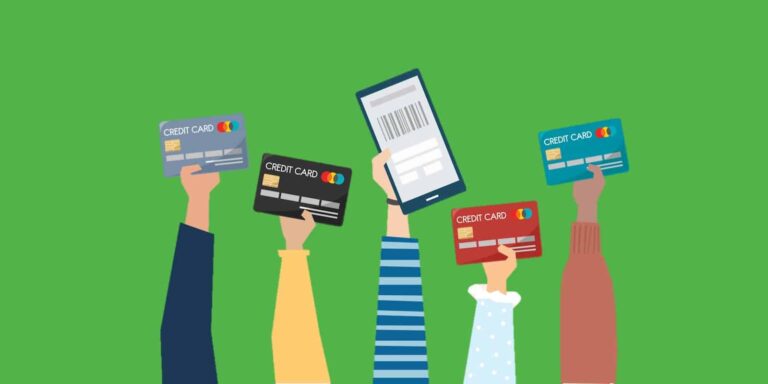Can I Sell My Credit Card Rewards?
Many people wonder, “Can I sell my credit card rewards?” The idea of turning points or miles into cash seems appealing. This post will explore the possibilities and limitations of selling credit card rewards. We’ll also discuss alternatives and how to maximize their value. Read on to find out what you can do with your rewards.
Understanding Credit Card Rewards
What Are Credit Card Rewards?
Credit card rewards are perks offered by banks and financial institutions to encourage the use of their credit cards. Every time you swipe your card, you earn rewards like points, miles, or cash back based on your spending. These rewards can vary significantly depending on the credit card and the specific rewards program. Some cards offer a flat rewards rate for all purchases, while others provide extra points for spending in certain categories, like dining or travel.
Types of Credit Card Rewards
There are several types of credit card rewards, each designed to appeal to different spending habits and preferences:
- Cash Back: This type of reward gives you a percentage of your purchases back as cash. It’s straightforward and can be applied to your statement balance, received as a check, or deposited into your bank account.
- Points: Points are a flexible form of reward that can be redeemed for a variety of options like gift cards, travel bookings, or merchandise. Some cards offer higher points for specific purchases, such as groceries or gas.
- Miles: Perfect for travelers, miles can be redeemed for flights, hotel stays, and other travel-related expenses. They often have partnerships with airlines or hotel chains to maximize benefits.
How to Earn Credit Card Rewards
Earning credit card rewards is all about smart spending. Here’s how you can make the most of your card:
- Choose the Right Card: Pick a card that aligns with your spending habits. If you travel frequently, a card offering miles might be best. For everyday purchases, a cash back card could be more beneficial.
- Understand Bonus Categories: Some cards offer additional rewards for spending in certain categories. Make sure you know these categories and plan your spending accordingly.
- Pay Your Balance in Full: To truly benefit from rewards, avoid interest charges by paying your balance in full each month. Otherwise, the interest could outweigh the rewards earned.
Pro Tip: Regularly monitor your credit card statements and rewards balance to ensure you’re maximizing your benefits and not missing out on any opportunities.
By understanding the different types of rewards and how to earn them, you can make informed choices that enhance your financial strategy and get the most from your spending. Remember, the key is to align your card choice with your lifestyle and spending habits.
The Legality of Selling Credit Card Rewards
Legal Restrictions on Selling Rewards
Selling your credit card rewards might sound like a nifty way to make some extra cash, but there are some serious legal hurdles to consider. Most credit card companies have strict rules about what you can do with your rewards. Generally, these rewards are meant for personal use and not for sale. When you sign up for a credit card, you agree to a bunch of terms and conditions, and these usually include not selling your points or miles.
However, some programs might let you transfer points to friends or family, but selling them on the open market is often a big no-no. It’s crucial to read the fine print of your credit card agreement to know what’s allowed and what’s not.
Consequences of Violating Terms
If you decide to sell your rewards, you could face some pretty stiff penalties. Credit card issuers don’t take kindly to violations of their terms. You could lose your rewards, or even worse, they might close your account altogether. This could not only affect your access to credit but also harm your credit score.
It’s not just about losing your points; it’s about potentially damaging your financial standing. So, before you decide to sell, think about the long-term consequences.
Understanding Credit Card Agreements
Credit card agreements can be dense and full of legal jargon, but taking the time to go through them is essential. These documents outline what you can and can’t do with your rewards. If you’re unsure about anything, it’s always a good idea to contact customer service for clarification.
Knowing the ins and outs of your credit card agreement can save you from headaches down the line. It’s better to be informed than to face unexpected penalties.
Can I Sell My Credit Card Rewards?
Exploring the Possibility
Selling credit card rewards might sound tempting. Imagine turning those points into cash. But, it’s not as simple as it seems. Credit card companies usually have strict rules against selling rewards. They want you to use them within their ecosystem, not trade them like baseball cards. If you decide to sell, you’re probably breaking their terms and conditions.
Factors to Consider
Before you even think about selling, consider these factors:
- Legal Implications: You could face penalties or lose your rewards if caught.
- Market Value: Rewards might not fetch a high price, making the effort less worthwhile.
- Security Risks: Selling online can expose you to scams.
Alternatives to Selling
If selling isn’t an option, don’t worry. There are other ways to make use of your rewards:
- Redeem for Travel: Use points for flights or hotel stays.
- Gift Cards: Convert points into gift cards for popular stores.
- Donate to Charity: Some programs let you donate points to a good cause.
Selling credit card rewards isn’t straightforward. It’s a gray area with potential risks. Always explore alternatives and consider the consequences before making a decision.
Benefits of Selling Credit Card Rewards
Quick Cash Opportunities
Selling your credit card rewards can be a fast way to get cash. Instead of letting those points sit unused, you can turn them into something that can be spent right away. This is especially useful if you’re in a pinch and need money for unexpected expenses or just want to treat yourself to something special. Converting points to cash can offer a quick financial boost without the need for a loan.
Flexibility in Spending
One of the biggest perks of selling your rewards is the flexibility it provides. With cash in hand, you can decide how to spend it—whether it’s for paying bills, investing, or buying something you’ve had your eye on. Unlike specific reward redemptions, cash gives you the freedom to allocate funds where they’re most needed in your life.
Maximizing Reward Value
If you’re savvy about the market, you might even sell your rewards for more than their face value. This means you could potentially make a profit, turning points into extra savings or funding a small adventure. Selling can also help you clear out unused points, making budgeting simpler and avoiding the expiration of valuable rewards.
Selling credit card rewards can be a smart move if you’re looking to maximize their value without the hassle of traditional redemption options. It’s a way to make the most of what you already have, with minimal effort involved.
Consider these benefits before deciding to sell your rewards. Whether you need flexibility, quick cash, or want to maximize your reward’s potential, selling could be the right choice for you. Remember, though, that cash back is often praised for its simplicity and ease of use, making it a popular choice among consumers.
Risks Involved in Selling Credit Card Rewards
Potential Scams and Fraud
Selling credit card rewards might seem like a quick way to make some cash, but beware of the scams lurking in the shadows. Fraudsters are out there, ready to pounce on anyone looking to sell their points. Fake buyers might show interest, only to disappear once they get what they want, leaving you high and dry. If you’re not careful, you could end up losing your rewards without any compensation.
Impact on Credit Score
Messing with your credit card rewards can have a ripple effect on your credit score. When credit card companies find out you’re selling your rewards, they might not be too happy. They could shut down your account or revoke your points, which could hurt your credit score. A lower credit score means higher interest rates on loans and less favorable terms, so think twice before you sell.
Market Value Fluctuations
The value of credit card rewards isn’t set in stone. What seems like a good deal today might not be worth much tomorrow. Market conditions can change fast, and if you’re not tuned in, you might sell your rewards for less than they’re worth. Keep an eye on market trends and be aware of the risks involved in selling your rewards.
Alternatives to Selling Credit Card Rewards
Redeeming for Travel
Why sell your rewards when you can explore the world with them? Many credit card programs allow you to redeem points or miles for flights, hotel stays, or even car rentals. This can be a great way to save money on your next vacation. If you love to travel, this option might be more valuable than a quick cash payout. Plus, travel rewards often include perks like free checked bags or priority boarding, adding extra value.
Using for Gift Cards
Another option is to exchange your credit card rewards for gift cards. This can be a flexible way to use your points, as many programs offer a wide variety of retailers to choose from. Whether you need groceries, gas, or a new gadget, there’s likely a gift card available that suits your needs. Gift cards can be a savvy choice, especially during sales or promotions, allowing you to stretch your rewards further.
Donating to Charity
Feeling generous? Some credit card companies let you donate your points to charitable organizations. This is a fantastic way to support causes you care about without spending any cash. While you won’t get a tax deduction, the satisfaction of helping others can be rewarding in itself. It’s a simple yet impactful way to put your unused points to good use.
Instead of selling, consider these alternatives that can offer meaningful experiences or help others. Whether it’s exploring new destinations, shopping smartly, or giving back to the community, your credit card rewards have the potential to make a difference.
How to Safely Sell Credit Card Rewards
Selling your credit card rewards can be tricky, but if you’re determined to do it, here’s how to keep it safe:
Choosing Reliable Platforms
First off, finding a trustworthy platform is key. Make sure the site or service you choose is reputable and has good reviews. Look for platforms with a track record of successful transactions and positive feedback from users. Avoid sketchy websites that promise too-good-to-be-true deals.
Avoiding Common Pitfalls
Next, be aware of the common traps people fall into. Some buyers might try to scam you by not paying or disappearing after getting your rewards. Protect yourself by using platforms that offer secure payment methods or escrow services. Always verify the buyer’s credibility before proceeding with the transaction.
Ensuring Secure Transactions
Finally, focus on transaction security. Use payment methods that offer protection, like PayPal or other services that provide buyer and seller security. This way, if something goes wrong, you have a chance to recover your money or rewards.
Remember, selling your credit card rewards might seem like a quick way to make some cash, but it’s important to tread carefully. Always prioritize security and legitimacy over speed and convenience.
If selling your rewards seems too risky, consider other ways to utilize them effectively instead.
Maximizing the Value of Your Credit Card Rewards

Strategic Redemption Options
To truly get the most out of your credit card rewards, it’s vital to choose the right redemption options. Different cards offer various ways to use your rewards, from travel and merchandise to cash back and gift cards. Consider your lifestyle and spending habits when deciding how to redeem your points. For instance, if you love traveling, using points for flights or hotel stays might be the best choice. On the other hand, if you prefer tangible items, gift cards or merchandise could be more appealing.
Understanding Reward Expiration
One aspect often overlooked is the expiration of rewards. Many credit card programs have a time limit on how long you can hold onto your points. Keeping track of these expiration dates is crucial to ensure you don’t lose valuable rewards. Some cards offer ways to extend the life of your points, like making a small purchase or using the card regularly. Always check the terms and conditions of your credit card to understand how long your rewards will last.
Combining Rewards for Greater Value
Sometimes, combining rewards from different programs can maximize their value. This is especially true if you have multiple credit cards that allow point transfers. By pooling points together, you might reach redemption thresholds faster, unlocking better deals or discounts. This strategy can be particularly effective for travel rewards, where combining points might get you a free flight or a luxurious hotel stay. Remember, though, to check if there are any fees or limitations when transferring points between programs.
Think of your credit card rewards as a tool for enhancing your financial flexibility. With the right approach, these points can significantly boost your purchasing power, allowing you to enjoy perks without extra spending.
By maximizing credit card rewards, you can align your spending with the best reward categories and take advantage of sign-up bonuses. This strategic approach not only enhances your rewards but also optimizes your overall financial strategy.
Common Misconceptions About Selling Credit Card Rewards

Myths vs. Reality
When it comes to selling credit card rewards, there’s a lot of confusion out there. Many people think it’s a straightforward way to make some extra cash. However, the reality is more complicated. Most credit card issuers have strict rules against selling points or miles. Violating these terms can lead to penalties, including losing your rewards or even having your account closed. So, while it might seem like a quick way to earn money, the risks often outweigh the benefits.
Understanding Terms and Conditions
Understanding the fine print of your credit card agreement is crucial if you’re considering selling your rewards. These agreements often contain specific clauses that prohibit the sale or transfer of points. Here’s a simple way to think about it:
- Read the Agreement: Always go through your credit card’s terms and conditions.
- Check for Restrictions: Look for any mention of selling or transferring points.
- Consult Customer Service: If you’re unsure, it’s best to ask your card issuer directly.
Legal Implications
Selling your credit card rewards can have legal consequences. Most credit card companies clearly state that selling points is against their policy. If you’re caught, you could face severe repercussions, including legal action. Before you consider selling your rewards, think about the potential legal issues and whether it’s worth the risk.
It’s important to remember that what seems like a good idea could lead to unexpected problems. Always weigh your options carefully and consider alternatives that might be more beneficial in the long run.
For those looking to understand more about credit card myths and how to build a positive credit history, especially for students, it’s helpful to explore Understanding common credit card myths. This can help you make informed decisions and avoid common pitfalls.
Exploring the Market for Credit Card Rewards
Current Trends in Reward Sales
The market for credit card rewards is buzzing with activity. People are increasingly looking to convert their points and miles into cash or other valuable items. One noticeable trend is the rise of online platforms that facilitate the buying and selling of these rewards. These platforms often promise quick transactions and competitive rates, attracting a wide range of users. However, the legality and security of these transactions can vary, so it’s crucial to proceed with caution.
Popular Platforms for Selling
Several platforms have emerged as leaders in the credit card reward resale market. These include both dedicated websites and broader marketplaces where users can list their rewards for sale. Some of the most popular platforms offer user-friendly interfaces and secure payment options, making it easier for sellers to find buyers. Here’s a quick look at some key players:
- Reward Stock: Specializes in converting points into travel opportunities.
- Points.com: Allows for the transfer and sale of various types of rewards.
- MileagePlus X: Focuses on selling airline miles and related rewards.
Evaluating Market Demand
Understanding the demand for credit card rewards can help you decide whether selling is a good option. The demand often fluctuates based on economic conditions, travel trends, and even seasonal factors. For instance, travel-related rewards might see a spike in demand during holiday seasons. Assessing these trends can help sellers maximize their profits and avoid potential pitfalls.
Navigating the market for credit card rewards can seem daunting, but with the right approach, it can be a rewarding endeavor. Stay informed and cautious to make the most of your rewards.
How to Transfer Credit Card Rewards to Others
Rules for Transferring Points
Transferring credit card rewards isn’t always straightforward. Typically, the person you’re transferring to must be an immediate family member, like a spouse or sibling, and they often need to have an account with the same provider. Each credit card company has its own set of rules, so it’s a good idea to check in with your provider to understand the specifics. Remember, these rules are in place to prevent any misuse or fraudulent activity.
Fees and Limitations
Transferring points isn’t always free. Many credit card companies charge a fee to move your hard-earned rewards to someone else’s account. It’s important to weigh these costs against the benefits of transferring. Sometimes, the fee might be worth it if the recipient can use the points more effectively than you. But, if the cost is too high, you might want to consider other options.
Best Practices for Transfers
If you’re set on transferring your rewards, here are a few tips:
- Verify the Recipient’s Eligibility: Make sure the person you’re transferring to meets all the requirements.
- Understand the Costs: Know the fees involved and decide if the transfer is worth it.
- Check Expiry Dates: Ensure the points won’t expire soon after the transfer.
When transferring credit card rewards, it’s all about making sure the process is smooth and beneficial for both parties. Always keep an eye on the fine print and stay informed about any changes in your credit card’s policies.
Conclusion
So, can you sell your credit card rewards? Well, it’s a bit of a mixed bag. Technically, most credit card companies frown upon it, and you might run into some legal hiccups if you try. But hey, if you’re sitting on a pile of points and not sure what to do with them, there are other ways to make them work for you. Whether it’s trading them for travel, gift cards, or even donating to charity, there’s no shortage of options. Just remember to check the fine print of your credit card agreement so you don’t accidentally step on any toes. At the end of the day, it’s all about finding the best way to use those rewards to fit your lifestyle. So go ahead, explore your options, and make those points count!
Frequently Asked Questions
Can I sell my credit card rewards for money?
Most credit card companies do not allow you to sell your rewards for cash. Selling points or miles often goes against the terms of your credit card agreement.
What are the risks of selling credit card rewards?
Selling credit card rewards can lead to penalties from your card issuer, including losing your rewards or even having your account closed. There’s also a risk of falling for scams.
Are there legal issues with selling credit card rewards?
Yes, selling credit card rewards can be against the rules set by your card issuer. Breaking these rules might lead to legal consequences.
What are alternatives to selling my credit card rewards?
Instead of selling, you can redeem your rewards for travel, gift cards, or donate them to charity. These options can provide great value without breaking any rules.
How can I maximize my credit card rewards?
To get the most out of your rewards, use them strategically for high-value options like travel. Keep track of expiration dates and combine rewards when possible.
Do credit card rewards expire?
Yes, some credit card rewards can expire. It’s important to check your card’s terms to know when your points or miles might expire.
Can I transfer my credit card rewards to someone else?
Some programs allow you to transfer points to family members or friends, but this often comes with restrictions and fees.
What should I consider before selling my credit card rewards?
Before selling, consider the risks, including potential penalties and scams. Explore all redemption options to ensure you’re making the best choice.







